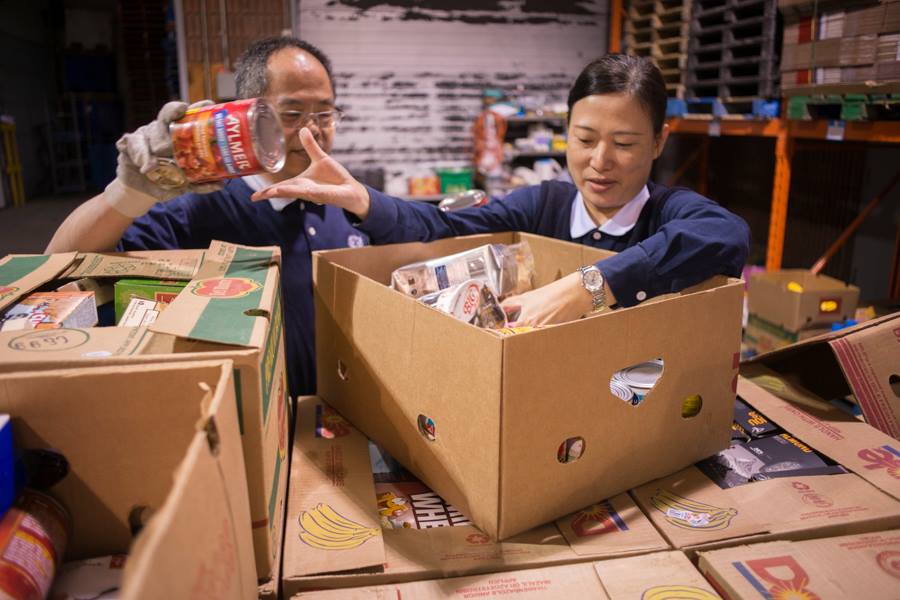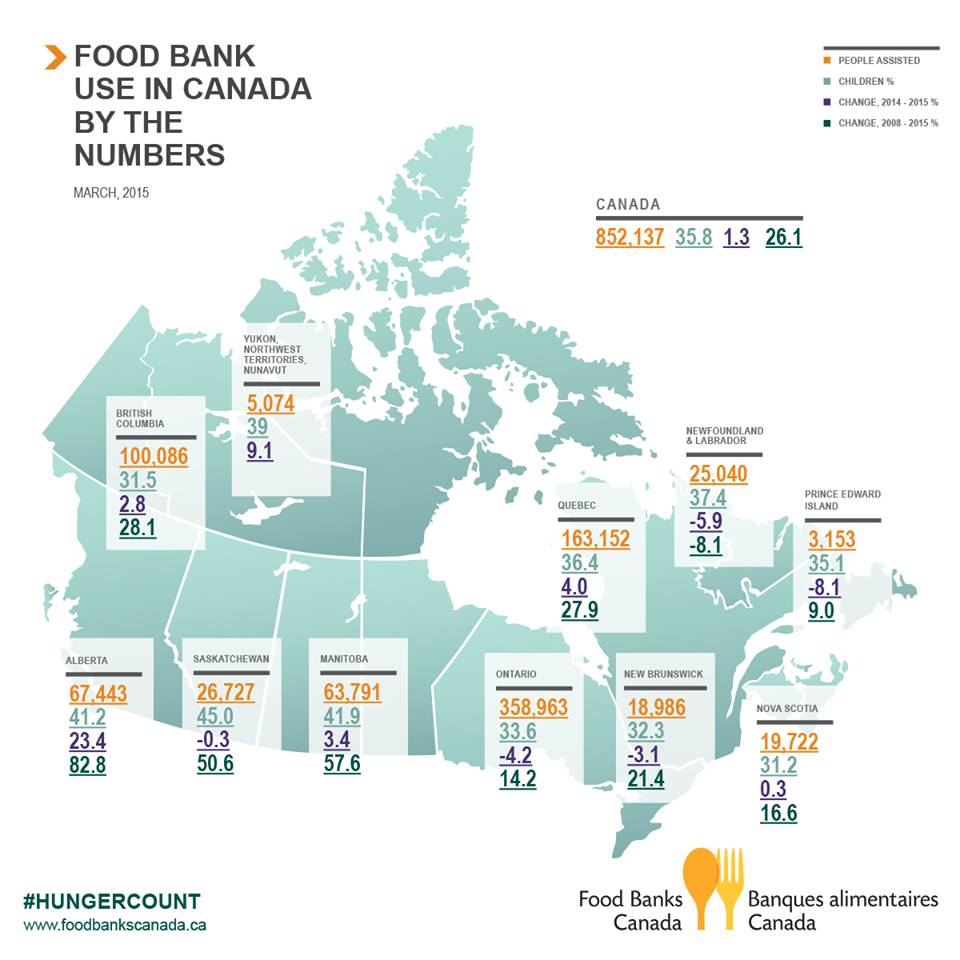In wealthy Canada, hunger is rapidly growing: food bank report

More than 850,000 Canadians rely on food banks each month to put food on the table − a figure that has gone up by 26% since 2008, according to the 2015 Hunger Count report released by Food Banks Canada today.
Anti-poverty groups are calling it unacceptable to have such high levels of food insecurity in a nation as wealthy as Canada and are calling on the government to address poverty as a matter of priority.
“In a country as wealthy as Canada it can be difficult for some to fully understand the realities of the experience of food insecurity” Canada Without Poverty said in a release. “For those who have not had to skip meals so that their children can eat or who haven’t had to live off the last bag of rice for a week until they can make another trip to the food bank, it can be hard to grasp this everyday struggle.”
The Hunger count report show that the number of people who are relying on food banks has been rising steadily over the last seven years with a 1.3% rise in usage in the last year alone.
852,137 people used food banks across the country in March of 2015, the month in which number are collected, with 78,693 of these individuals visiting food banks for the first time.
“The need to visit a food bank can rise unexpectedly, just as falling into poverty can be unexpected,” CWP explained.
Alberta marked the highest increase in food bank usage with 67,443 people availing of the service in March 2015 − a jump of 23.4% from 2014.
“The stark increase is likely a result of the oil patch slowdown in the province,” CWP said.
In Northern Canada, where high food prices have long been an issue, food bank usage saw an increase of 9.1% from 2014 to 2015.
“This is unsurprising considering the recent PROOF report, which noted food insecurity at 45% in Nunavut and 20.4% in the Northwest Territories,” CWP said. “For Northern communities with limited access to food banks, food insecurity is at emergency levels.”
The Hunger Count 2015 report suggests that these numbers point to larger systemic causes of poverty including the lack of affordable housing and adequate income supports, acknowledging that “[w]hile food banks provide an essential service in their communities, they are nevertheless a partial and imperfect solution to the problems caused by widespread poverty and food insecurity”.
The opposition New Democratic Party also urged Prime Minister Justin Trudeau’s Liberal government to take urgent action to tackle poverty.
“It’s unacceptable in a country as wealthy as Canada that so many people can’t afford food. The rising number of Canadians needing help finding enough food to eat should serve as a wake-up call,” Brigitte Sansoucy (Saint-Hyacinthe – Bagot), NDP critic for Families, Children and Social Development, said. “Urgent action is needed from the federal government.”
While the mandate letter for Families, Children and Social Development Minister Jean-Yves Duclos included poverty reduction, the Liberal government has not yet offered any details on timelines or strategies, the NDP claimed.
“A significant proportion of food bank users are working Canadians who can’t make ends meet on low wages,” Sansoucy added. “As part of their strategy, the Liberals should adopt a federal minimum wage and increase the Working Income Tax Benefit, to ensure that more Canadians are receiving a living wage.”
“These increases in food bank usage reveal the persistency of food insecurity in Canada,” CWP concluded. “There’s no question about it – unless we take real, concrete action, these numbers will continue to rise. Individuals across Canada will continue to be struggle to put food on the table.”�




